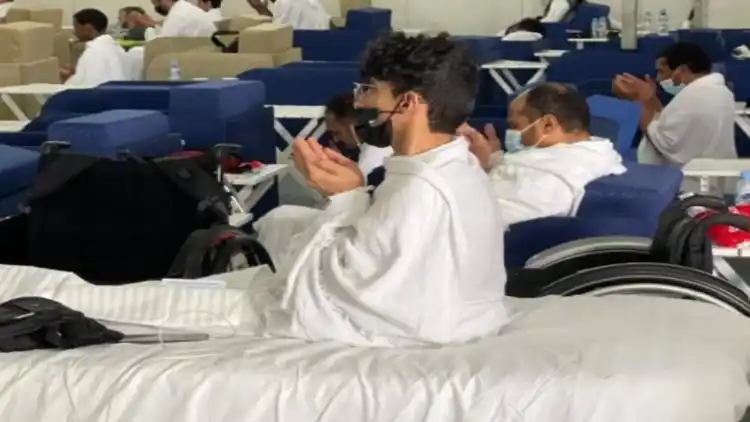
Makkah
More than 25,000 foreigners from 150 countries were among a total of 58,518 pilgrims who performed Hajj in Saudi Arabia this year.
Releasing this information the authorities in Makkah said At 25,702 almost half of the pilgrims were women. It’s for the first time that Saudi had allowed women to go alone to perform the Hajj.
According to the reports published in the Saudi media, this year’s Hajj pilgrims also included 17 physically challenged person for whom the authorities had provided special facilities.
These pilgrims were housed in 213 camps, including 71 in Mina and Arafat, and 71 areas in Muzdalifah, in addition to 848 rooms in Mina towers, the statement from Saudi authorities said.
During the Hajj season, 17 pilgrims,affiliated with the Mobility Disability Association for Adults (Harkiah), (physically challenged persons) performed the Hajj rituals as part of the “Empowering the Mobility Disabled to Perform Hajj" program, one of the initiatives of the Ministry of Hajj and Umrah.
The Association provided modern and special cars for people with disabilities throughout the Hajj pilgrimage and also arranges housing facilities tailormade for them at the holy sites.
Overjoyed and delighted to get an opportunity to perform the rituals, Abdullah Al-Rishan, one of the pilgrims with physical challenges, said: “I have no words to express my gratitude to God for enabling me to perform the rituals of Hajj. My dream came true several years after I got paralyzed in 2011 following a traffic accident,” he said while thanking the Saudi government for supporting and paying great attention to people with disabilities.
“I witnessed the crowds of pilgrims while standing on Arafat, and I threw pebbles at the Jamarat with ease and comfort, and I went to the Grand Mosque and performed Tawaf Al-Ifadah. We found all the care and attention from all sectors working during the Hajj, and the provision of all requirements and needs,” he said.
Majed Al-Sarie, another pilgrim, said: “I was paralyzed caused by hemiplegia after a traffic accident 10 years ago, but I always believed that I am the one who controls the disability. So it's not logical for me to make this disability a reason to refrain from performing Hajj.”
